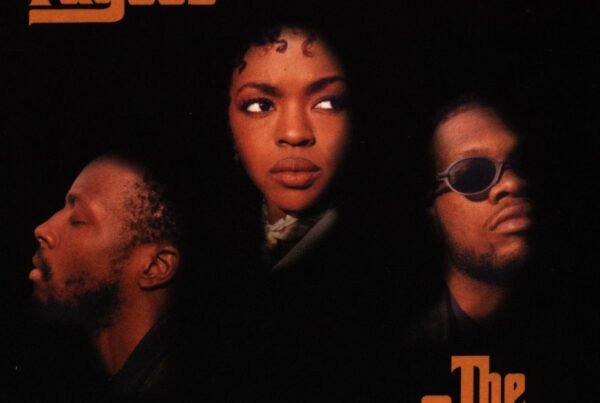*Disclaimer: We have planned this feature a good few months prior to its first installment, and Linkin Park‘s Meteora was one of the first batch of records the editorial came up with to put on the list of records to include. This article is therefore in no way, shape, or form a try to profit from the tragic passing of the band’s lead singer Chester Bennington; in fact, I as the feature organizer thought about whether to even review it or not for a long time after the news broke. The truth is, both the band and the album deserve their spot on this feature, and so the only thing I did was slightly re-scheduling this entry.
I know suicide is a difficult topic to deal with, and for the most part, we’ll be focussing on the music; this is a music-related site, after all. Nevertheless, if you know of anyone who struggles or if you’re affected yourself, please seek help immediately. There is always something to hold on to, and there’s absolutely no reason to suffer in silence. None of you are in this alone. We as a community should always strive to stand together and help each other out, despite all our differences regarding musical taste, age, gender, sexuality or race. All of you matter, and all of you are important to this world. It might be hard to realize that sometimes when times are dark, but it’s true.
So please, be respectful in your reaction to this piece, in which we want to share our experiences with a landmark album of the metal scene and thereby pay homage to a highly influential singer who sadly passed way before his time. Thank you in advance.
-Dominik Böhmer
Welcome to the eleventh episode of A Scene In Retrospect, the feature in which we review records that helped shape our scene as we know it today. This time around, our social media manager Valentin, our staff writers Jake and Jordan, as well as yours truly, will be talking about their experiences with and memories of Linkin Park‘s acclaimed and influential second full-length album, Meteora. Please enjoy!
Jordan Gale
Linkin Park released Meteora in 2003, when I was 13 years old. At that point in my life I was first discovering the rock music that would shape my love for metal as I grew older. Meteora was a groundbreaking album for me in many ways. It featured aggressive vocals, dark and honest lyrics, and well-executed melodies that had me listening to it constantly in my CD player while I walked home from school. What made Meteora especially unique was that it featured elements like the rapping of Mike Shinoda and the electronic instruments that made it stand apart from a lot of the rock I normally heard. It was something that stood apart from the pack, and I credit it with being one of my first milestones on the path to heavy music.
I remember getting ready for school with MTV playing (back when music videos were their thing still) and seeing “Faint” come on. From the electric intro of the song I was hooked. The thick guitars, vocal delivery, and the energetic rhythm really drew me in, so much so that I bought the record off of that song alone.
Meteora is a great album from front to back, and even 14 years later it’s still really hard for me to choose a favorite song. Tracks like “Don’t Stay”, “Numb”, and “Breaking the Habit” are well-crafted and deserving of praise. The lyrical content of every song touches a real place, which is the reason it has resonated so strongly for millions of listeners. With that said, after the hundreds of listening sessions I’ve given Meteora I always find myself coming back to “Figure.09” at least once or twice. In particular, the guitar and the drums of that song always resonated with me. I especially like the intelligent employment of space to help open the song up and expose the layers it’s built on. The vocal delivery on “Figure.09” is also diverse, with Chester Bennington throwing power and emotion into the chorus while Mike Shinoda uses his flowing lines to drive everything forward. As a package, I have always really enjoyed that song for all the elements it brings to the table.
It is my opinion that few could argue that Meteora by Linkin Park has earned a place of pride in the lexicon of modern rock music. The album was a central piece of art for an entire generation, and the influence of that sound reaches forward into today.
Jake Walters
When I knew that I was going to get the chance to be a part of this ASIR, I was quite ecstatic. I have a personal history with this record. When it came out in 2003, I was in a fairly dismal place in my life. A friend who knew this offered up Meteora as a way to help. Up until this point in my life I hadn’t paid much attention to the more aggressive styles of music, and my world was about to get rocked. When “Don’t Stay” came rollicking through the speakers in my 1989 Jeep Cherokee, I was forever changed.
As I listened to the album over and over, I realized that Chester was saying everything that I wanted to say, but just couldn’t articulate. I enjoyed the loud, brash instrumentation and Shinoda’s rap segments, but the honesty in these lyrics was a revelation. Even the softer tracks like “Easier to Run” were poetic and insightful, but still had a bitter edge that resonated. This was shattering my idea of what music could be. I never knew Chester, but it was like he spoke for all of us that were fed up, angry, and in despair.
The wealth of influences that Linkin Park funneled into Meteora is quite impressive. One of my favorite songs by the band, and period, is the synth-pop driven “Breaking the Habit”. It showed that the band was not only adept at aggression and honesty, but could also write a powerful anthem about overcoming. The place of the song in the album was not lost on me. The often temporary victories I had in life were surrounded by anger and misunderstanding, but the resolve to try and hope kept me going. Once again, this album read me like a book.
Of the many standout things about Meteora, one that impressed me was that the band chose not to swear in their lyrics this time around. While harsh language wasn’t (and isn’t) a turn off to me, the lack of it within these songs told me a lot. These feelings weren’t reactions, they were intentional articulations of what was inside, and sometimes that comes across cleaner without swearing. This is still something that I respect and love in an artist.
The final song on the record is one that I think spoke to me the most during that time, and is still a real banger all these years later. “Numb” may be the most popular songs from this release, but it’s still a lyrical powerhouse. Meteora means a great deal to me. It helped guide me through some darker times in my life, and opened my eyes to the aggressive music scene. It will always be my favorite album from this band and era.
Valentin Bock
It’s been 60 days since the tragic passing of Chester Bennington, and it still feels surreal to me that he is gone forever. Ever since I started to listen to music passionately, Linkin Park always were an incredibly important band for me in many ways: Meteora was one of the first albums (if not THE first album) I bought with my own money, my first ever concert back in 2008 was on Linkin Park’s EU tour and my first-ever piece of band merchandise was a Linkin Park shirt.
Until this day I remember exactly how discovered the band: I was sitting on my grandparents’ couch watching MTV when the music video for “Breaking the Habit” came on. I was immediately hooked from the overall drive of the song, Chester’s outstanding vocals and the unique music video (which I still consider as one of the coolest music-vids ever).
Shortly after discovering what would soon become one of my all-time favorite bands, I had to buy Meteora, because I was dying to hear more of this band called Linkin Park. And damn, I wasn’t disappointed! Listening to the album for the first time was an eye-opening (or rather ear-opening) event. The use of rap-vocals and electronic elements in rock/metal music, the sheer energy of Chester Bennington’s screams or the incredibly catchy melodies that run like a golden thread through the album – it was a brand new listening experience for the twelve-year-old me that grew up listening to Nirvana, Green Day or R.E.M..
I spent countless hours listening to this album because it just fascinated me so much. I was trying to figure out Mike Shinoda’s verses in “Faint”, tried to memorize the lyrics for “Numb” (one of the best rock-hymns ever) or played air-drums to the absolute groove-monster that is “Lying From You”. I could continue to talk about this album and what it means to me for hours, but that would go beyond the scope of this article…
It’s just safe to say that Meteora will always hold a special place in my heart, because it massively shaped my taste in music and was a daily companion during some tough years in high school. I still jam this masterpiece on a regular basis and will probably do so in 50 years as well. Chester Bennington was one of my first childhood heroes, and I already miss him and his voice dearly. He may be gone, but the legacy he created with his bandmates will definitely live on forever.
Dominik Böhmer
Before I begin this proper, I want to give a quick shout out to my sister, who is one of the biggest LP fans I know, and for that reason was affected deeply by Chester’s recent passing. Sis, I hope this article can help you cope a bit, and that us sharing our experiences here offers you a tiny spec of solace and consolation in this troublesome time.
Now, at the time when I started preparing to write this piece, I hadn’t heard Meteora in years. And yet, without even being a Linkin Park fan myself (I was heavily exposed to them by way of my sister playing their music around the house a lot), I still knew most of the songs on it by heart. Not many bands from the nu-metal era (or any era of heavy metal music for that matter) can claim that kind of staying power, and it’s very telling of the band’s immense song writing skills.
Not only are the songs on the album extremely poppy and catchy (a feat for which Linkin Park were always looked down upon by ‘trve’ metal heads), but the diversity between them is nothing but impressive. Heavy tracks like “Hit the Floor” sit comfortably next to synth-driven pop tracks like “Breaking the Habit” and crossover bombshells in the vein of “Faint”. Many acts would kill for being able to channel such a vast array of styles into a cohesive, memorable whole, but for LP, it seemed to come infuriatingly naturally.
And if you’re still questioning the legitimacy of talking about Meteora on a progressive music site, then take a step back and look around our scene for a moment. See all the bands that try to incorporate clean sing-along choruses into their heavy compositions? All the bands that blend various styles of urban/electronic/non-metal music with down-tuned, distorted guitars? In large parts, you’ve got Linkin Park to thank for that. Not because they were the only ones pushing that kind of hybridized music, but because they were the ones to make forward-thinking, innovative and ‘edgy’ yet marketable music socially acceptable and easily accessible for a new generation of musicians to come.
I’ll leave you with an anecdote from my own teenage years. One day at band practice, back when I was actually in a band for like two weeks or so, we tried to do “From the Inside”; needless to say I completely botched it. It wasn’t because I couldn’t do the rap parts or keep up with the instrumentation, I simply wasn’t able to do Chester’s performance any justice at all. He was just too good of a vocalist for anyone to even imitate properly.
RIP Chester Bennington; nobody will ever fill the void you left in the music scene when you left.
And that’s it! Many thanks to Jordan, Jake and Valentin for working with me on what is probably the most special episode of A Scene In Retrospect yet (for different reasons). What are your thoughts on Meteora? Please share them with us in the comments!
Come back in a fortnight for another classic review. Until then, stay safe, and as always…
…thanks for reading!






